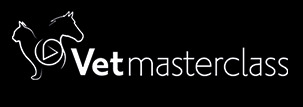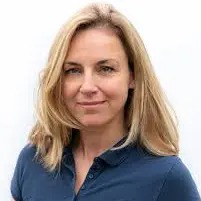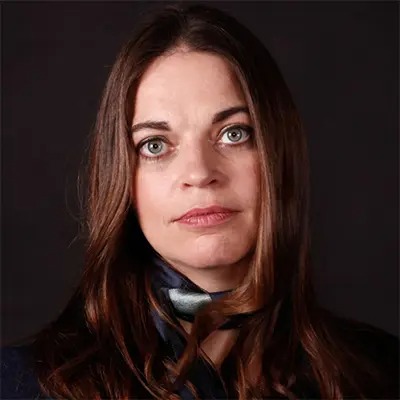Usefulness/Limitations of Gastric Ulcer Screening & Mass Prophylaxis in Sports/Race Horses
Species
Equine
Contact Hours
3 Hours - RACE Approved
Language
English
Discipline
Diagnostic Imaging
Internal Medicine – Endocrinology, Haematology, Infectious Diseases, Parasitology & Oncology
Nutrition
Pathology - Clinical & Gross
Sports Medicine
Veterinary Partner
Equine



Book Part 1 (Webinar Series) & Part 2 (Panel Discussion) together and receive a discount!
Recorded on: 19th January 2021
Panelists:
Ben Sykes BSc, BVMS, MS, DACVIM, DECEIM, MBA, PhD – Massey University, New Zealand
Gayle Hallowell MA, VetMB, PhD, Cert AVP (Vet. Anaesthesia), DACVECC, DACVIM, PFHEA, FRCVS – University of Nottingham, UK
Ben Buchanan DVM, DACVIM, DACVECC – Brazos Valley Equine Hospital, TX, USA
Moderator:
Emmanuelle van Erck DVM, PhD, DECEIM – Equine Sports Medicine Practice, Belgium
CONTENT DESCRIPTION
With horses returning to racing and competing, gastric ulcers are once again at the forefront of our management headaches. Is mass prophylaxis indicated or potentially deleterious in the management of our highly-fuelled athletes? When and why should we recommend gastroscopy and isn’t there more to it than just spotting the odd ulcer? With their extensive experience in this field, our experts will help you decide how to rationally set up a viable plan that helps horses and owners stay ulcer-free. This discussion will provide you with the latest scientific evidence to navigate the jungle of feeds, treatments and supplements on offer…
DIAGNOSTICS
- Do the prevalence of ESGD and EGGD in wild/feral horses point towards existence of subclinical ulcers?
- Are all ulcers identified on gastroscopy clinically relevant? What proportion of pleasure vs. competition/race horses is affected by subclinical ulcers?
- Diagnostic strategies other than gastroscopy
TREATMENT
- Do all ulcer require treatment or only when associated with clinical signs or decreased performance?
- Managing glandular vs. squamous gastric ulcers – do the differences matter?
- Treatment strategies with omeprazole for gastric ulcers
- Side effects of omeprazole – real or fantasy?
- Adjunctive/alternative strategies – misoprostol, sucralfate and …
- Post-treatment Management - Sports horse vs. race horse
- Management of EGUS during competitions
- Supplements to prevent/treat gastric ulcers
GENERAL MANAGEMENT
- Best feeding strategy for gastric ulcers - Depending on age, breed, type and level of work
- Mass prophylaxis – is it justified? Does it depend on age, breed, type and level of work, feeding etc.?
Dr. Ben Buchanan grew up in Navasota, Texas. He went to Texas A&M and graduated from there with his DVM in 2001. Afterwards, he completed two residencies; Large Animal Internal Medicine at University of Tennessee, Knoxville in 2004 and Emergency and Critical Care at University of Pennsylvania in 2005. Ben is one of the very few people in the world to be board certified in Internal Medicine and Emergency Critical Care. Dr. Buchanan has a very unique experience in colic, respiratory disease, cardiac disease, eye conditions and sick foals. He joined BVEH Navasota in 2005, where he works alongside his father, T-Bone. He is also active in community outreach by speaking at meetings and events around the world regarding equine care.
More InfoEmmanuelle van Erck graduated in 1996 from the French Veterinary School of Maisons-Alfort. She trained in sports medicine at the University of Liège (Belgium) where she obtained her PhD on respiratory function testing in horses. She developped the equine sports medicine unit and consulted as senior clinician in the CIRALE in Normandy (France). In January 2010, she started her own ambulatory referral practice, the ‘Equine Sports Medicine Practice’, based in Belgium. Her practice offers specialized service in equine internal and sports medicine throughout Europe, following national teams and international riders.
Emmanuelle van Erck authored over 50 peer-reviewed scientific articles and regularly lectures at international conferences. She is a member of the FEI expert committee on prohibited substances and doping.
Gayle graduated from the University of Cambridge in 2002 and then undertook a rotating internship and residencies in large animal internal medicine and critical care at the Royal Veterinary College. She then moved to the University of Nottingham to undertake an equine cardiology PhD and stayed on staff for 15 years. She then joined IVC Evidensia where she led veterinary professional development and was an equine medicine consultant at Pool House Equine Hospital. She has recently returned to specialty practice as a clinician and educator at Equine Vet Medicine Referrals.
More InfoBen graduated from Murdoch University in 1997. He completed an Internship at Randwick Equine Centre in 1998 followed by a residency in Equine Internal Medicine in Virginia (USA) gaining his Diplomate Registration in Equine Internal Medicine in 2004. He then spent 7 years in Finland as Head of the Veterinary department of Equine Medicine and Surgery and was also visiting Professor in Equine Medicine and Surgery in Estonia. In 2011, Ben was awarded his European Diplomate award and he has a special interest in equine gastric ulcers, with many peered review publications to his credit. He is an Associate Professor in Equine Internal Medicine at Massey University and Honorary Lecturer at the University of Liverpool in the postgraduate certificate programme.
More InfoVeterinary Student
Online Panel Discussion
USD 20.00
Qualified Vet
Online Panel Discussion
USD 95.00
Intern/Resident/PhD (Requires proof of status)
Online Panel Discussion
USD 70.00
Vet Nurse/Vet Tech (Requires proof of status)
Online Panel Discussion
USD 70.00
If the options you are looking for are unavailable, please contact us.
No tax will be added unless you are a UK taxpayer
Choose currency at checkout


















